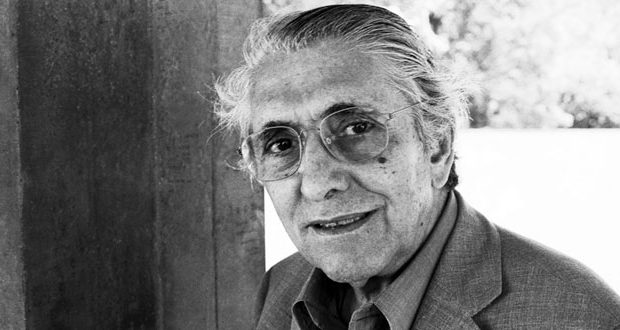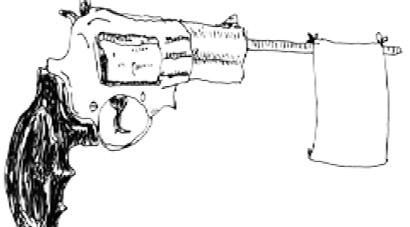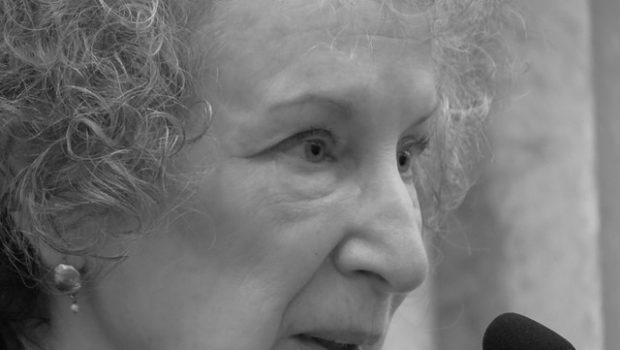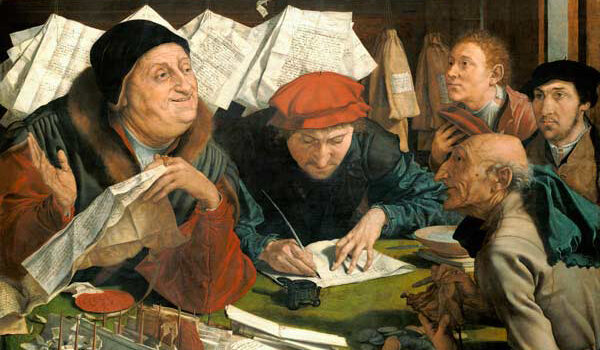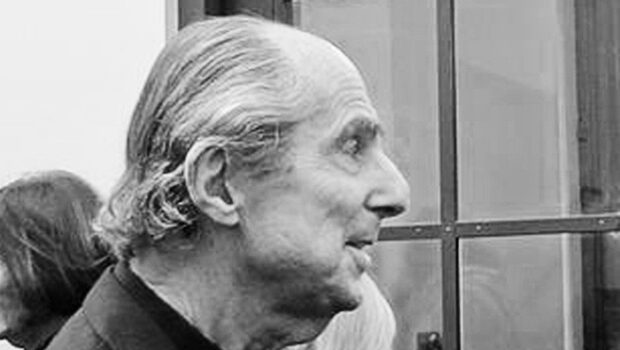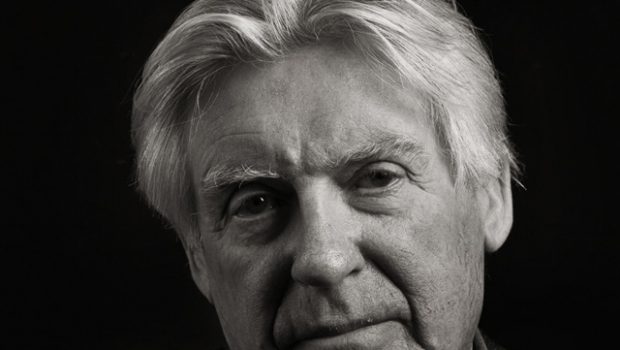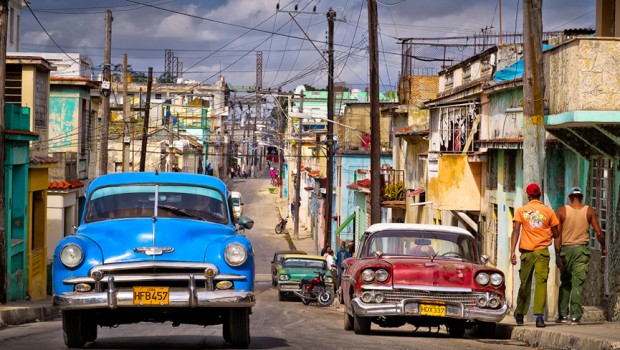January Rain
Alejandro Rossi
Translated from the Spanish by Janice Goveas
“We’ll meet again.”
The words went around and around in his head for days. He tried to shake them off. They felt as if they were flies that buzzed around him during his afternoon nap, bouncing off the walls with the speed of stray bullets. He wished they had been spoken by someone else, that they had come from a candid and intuitive young woman or from one those intense and transient friends that are sometimes gifted to us by good fortune. We do not, however, remember what we wish for, only what we deserve.
“We’ll meet again.”
He had heard the words thirty odd years ago, and it seemed unfair to him that they would return to his mind as harsh and as raw as they had been then.
“Go to hell!” he muttered listlessly, even though he knew that he would hear José Asunción’s nasal voice again, that he would feel the dust in his eyes again, that he would look for the little bottle of eyewash that Dr. Pulido had put together for him, that he would again make the gesture that Sergeant Gómez understood perfectly.
“It’s like sweltering in a memory. Go to hell!” he repeated with rabid resignation.
He fell asleep, a light sleep, which was kind to him, like the fine gauze that separated him from the sounds the cicadas made, from the picture of the Sacred Heart that María had hung in the doorway so that he could see it without moving his head, from the warm sheets that covered his feet, from the book by Rufino Blanco, the end of which now seemed too far away to be accessible. This way, everything was more bearable. The strong images softened and blended together. The last meeting with José Asunción, the little medicine table beside the bed, the endless hour during which he made the decision, the humidity stains on the walls, Sergeant Gómez’s final order, and, unexpectedly, Carmen’s face, a beloved cousin from his childhood. A clutter that was comforting, that emphasized the inevitable chaos of the world and, perhaps, the essence of our innocence. He found it insulting that he had to justify himself at his age, as if a stubborn, malevolent priest had positioned himself between his pain and his dreams. In some ways, he was right. We cannot be responsible for our entire lives. It would be foolish to wish to defend each and every one of our actions. Mistakes, errors in judgement, omissions, these are what define who we are without mercy. He thought, hazily but with a vague pride, that he would now never reach the point of being peaceful. The person who had said old age was a time for contemplation had been mistaken.
He heard the loud buzzing of a mosquito. He thought: it’s the lamp and those syrupy sweets that attract them. Let it rain so hard, he said to himself, that I can hear the big drops of rain bursting in the back yard. Maybe that was the only rest possible, through the sound of water and the clear light of dawn, but not, in any way, through the pompous, calculated words to which the official Textbooks dedicated themselves. He would have liked to have known what his exact place in them was, what he had in fact done, but he sensed, with a heavy disquiet, that there was not enough time left for anything to be made clear. He had never spent so many days in a bed, not even when his guts had been ripped open in that poorly planned fight now referred to in educational materials as The Battle of the Three Rivers. He felt lost in his mattress, which had once been used for nighttime nuptials, for love without words. It reminded him of the flat table in Dr. Córdoba’s clinic, the best in Puerto, where his throat had been operated on, a million years ago. María had set up a bell on the headboard, one of the few things that made him feel safe. He no longer believed in sudden miracles or in medications, but he took them anyway in order to not upset María and to avoid pointless arguments with her. He craved opiates, however, those clear vials with what he jokingly called heavenly water. It was said that they were like twenty thousand geishas massaging, with the precision of the tips of their fingers, each and every one of your cells. It was not the tranquility of memories, but rather a parallel world he associated with the limbo in which missing children lived. He knew that his body had abandoned him, and that he lived, more than anywhere else, in the odd independence of his thoughts, as if they had nothing to do with his bloated belly and his skinny legs. It occurred to him that the soul separate from the body was something made up by old men. He had always been articulate, but now, without rhyme or reason, he liked to recite tasteless words, swear words, slang. “Go to hell!,” “Gutless foo!,” “Faggots,” “Motherfuckers,” “Bloody whores,” and his favorite, ‘Fuck off!.” Afterward, Leonardo García Nieves would smile, as if he had brought order to the universe.
He rang the bell and listened to its strident sound, which went from the corner of the kitchen and along the verandah that ran along the back yard. He pictured the hydrangeas and thought about how delicate the flowers were and how rustic the terracotta flowerpots. He also thought that in the countryside, nature provided more refined outcomes than did the efforts of men. Poor María, he thought. She has no one left to help her except for lazy Valerie and the half-witted girl. They’d be making the chicken soup, now. He remembered that his mother, so assertive at home and so quiet when it came to major issues, insisted that the soup should be drunk boiling hot. He was not hungry and was already irritated by the way he would sweat after drinking the soup. It was seven in the evening, the waning hour when lights were turned on.
“Listen, María,” he said when she came into the room carrying a tray that was well laid out with a tureen, a soup bowl, a folded napkin, pieces of the good silverware. “Listen, María. If I can get out of this bed, I’ll take you to Tierra Santa.”
“That’s fine, Leonardo, but not during Easter. I’m afraid of crowds.”
“You, my eternal love, are not afraid of anything. Not of hungry swine and not of the moonlight. That’s why you stayed with me, a decrepit General whose victories looked much like defeats. The marches are over, and so are the meetings with Arabs to secure parkland and the early-morning departures with machete wielders and bare-foot grunts. By the way, do you remember that the poet Laureano called me ‘the poor man’s soldier’? As if we wanted it that way! We didn’t have a cent and we rationed tobacco. Well, María, I’ve offered you this trip I don’t know how many times. Do you no longer believe me?”
He was not lying to her. If a brave and remorseful angel were to rescue him, he would take her to Jerusalem in a comfortable steam boat, first to Barcelona or Geneva before going on to Palestine. He would look after her like he had not ever been able to do before, because there are women whose only destiny, it seemed, was to be by our sides in times of misery. They would walk along the decks of the boat and look out at the endless water. It would be a cleansing rest, without a single tree or any vegetation in sight, just the restorative sea. Without a Chinese man, or a rifle, or a parrot in sight. Being with María on the bow of the boat with a wind that blew away words and allowed the soft swaying to feel like a new dream. He would not be listening to the screeching birds, his belly would not be like a balloon, his liver would not be destroyed. Instead he would be well dressed, with strong legs and wearing an elegant panama hat.
“Yes, I believe you, Leonardo. Or maybe I force you to confide in me. But that, I don’t know about. The fact of the matter is that I don’t really like men with regrets. They become soft and empty. You know very well that I reject nothing about your life, even though it was filled with campaign tents and useless hikes. The peace you talk so much about will come soon. Drink your soup. It’s seasoned well, and it has no grease. And remember that I get nauseated on boats.”
“You don’t get nauseated, young woman, not even after dancing three waltzes in a row.”
He had always liked to be flirted with a little. He felt his eyes become cloudy, something new that months ago had begun happening more often. As if he had developed a new sensitivity to kindness.
“I’m going to die crying like a baby.”
He did not know that at every age and in every situation, we see the world in a different way. Old age or weakness helps us uncover the incredible strength that surrounds us, and we become amazed by the power of our voice, by the immense amount of energy we spend on insignificant movements. That was when we appreciated the plant that is eternally green, the flower that opened slowly, the gluttony of bees. We experienced affection as if some absolute power cared about us, had mercy on us. He looked at María’s hair, tied in a bun that was still mostly blonde.
“Listen, María. I no longer remember how old I am.” “Drink your soup. It tastes like chicken fat when it’s cold.”
“But, I can still remember Pacheco, the pathetic one. Yes, him. Remember how he made up that thing where he would be the savior of the mango, that celestial fruit, which would take over the big markets. He convinced Colonel Díaz to help him with the big landowners. People said that, instead of giving the Colonel a mango as a gift, he gave him an Arab dancer, the kind that move their bellybuttons. He was also managed to have Bishop Landozo, the one to whom those lewd and winding poems are attributed, bless the mango plant at the President’s house in Puerto. We gave orders to the soldiers in the countryside to not involve themselves in this. One day, I was told that Pacheco was expecting me in Puerto Naranjo. I was taken aback by his emaciated appearance, by the two-day-old beard, by the stained guayabera, and, most of all, by his faint voice begging me: ‘Don’t tell me which ones are your ideas. Let’s not waste time. I think I know which ones they are, and I respect them. It’s enough. If you all don’t want to help us, don’t do it. All I ask is that you let me negotiate, buy what I can. If it costs me more, so be it. Maybe someday soon, I’ll be the one lending you a hand.’
“You realize that Pacheco knew that we were fed up with the Colonel, the one who had, in one of his endless toasts, the ones in which that half-breed whipped up couplets, called us, I’m not joking, ‘the defenders of the sacred boundaries,’ when, in fact, they had us corralled in the corners of the countryside so that we would use our ancient rifles to shoot at the Unity Sect, that fiery mob that came over from the other side of the river, waving their yellow flags. We fought because we wanted to defend our sunflower fields, our silences, our wandering harpists. We didn’t want the evangelists with their righteous proclamations to frighten the people who were just arriving. I don’t know how to explain this to you. At the time, we thought of the countryside as something young and delicate that needed to be protected.
“I don’t want any more soup. It’s already cold. No, don’t give me anything else. I really don’t want to chew anything. Everything becomes a ball in my mouth and I can’t swallow. I was a thin child, and when I was seven or eight years old, I wouldn’t eat anything. My mother would put a plate of rice in front of me, and I would tell her I wasn’t going to eat it because I wasn’t Chinese. If it was pasta, I would tell I wasn’t going to eat it, either, because I wasn’t Italian. What do you think? What should I tell you, now? Let me talk for a little while. I know these stories are old and unimportant, but you like them, my love, because they happened before you met me. So, look, a year later, maybe less, Pacheco told us things were not going well, that Colonel Díaz was spending his time with twangy boleros and women with firm breasts, that he no longer gave a damn about the country, that he had lost himself in a sea of Martinican rum, and that people who were serious about the war effort didn’t know what to do with him. He assured me, with his listless drone of a voice, that he had enough money to recruit troops and buy weapons. ‘The countryside is a reserve that belongs to the Homeland. With five thousand troops, we’ll be able to send that drunk to an island in the Caribbean.’
“They took me prisoner. General Vicuña, a bony old man with a white moustache, screamed at me that I was a traitor. He gave me the only slap across the face that I’ve ever received in my life. You cannot imagine what it was like, María. At that time, there were few shots fired because troops were scarce and, it was thought, with cold calculation, that those who were with you one day could be on the opposite side the next. Maybe that was it, or maybe someone had set me up. In the end, they threw me in jail in Puerto for three years. Would you believe Pacheco visited me once? He planted himself in front of the bars and threw these words at me: ‘Colonel García Nieves, you are a dumbass.’
“If you were interested and were to search the textbooks for that period of time, you’d find that that atrocity has been christened The Battle for Reconciliation, and that they explain that it was a painful way to turn around the arrogant caudillos who wanted to secede. Curiously, they speak of me as a trained military man, misled by civilians. The shitheads wanted to save me for the future.”
For a second, a second as dark as a pit, he thought about his father who had gambled away the last of their family inheritance. It occurred to him, with certainty, that they were the same, that the training in the barracks had only been a superficial discipline. He remembered him in the rocking chair, fanning himself with a lottery ticket. He remembered him also in the checkered courtyard, and he felt profoundly sad, perhaps because he realized that there were changes that meant nothing, journeys we thought we were taking in which we moved barely a centimeter.
“Pacheco was right. I was naïve. The countryside awakens fantasies in you, it makes you feel as if you were in the Garden of Eden, able to do anything. Here’s the thing, María. Do you want to know what happened to Teófilo and Nicomedes? Nothing. Absolutely nothing. They were left alone, as if they’d been isolated in a zoo. Nicomedes wrote a pamphlet that he distributed among his friends, and the scribes convinced Díaz that he was, essentially, a peacemaker. Between you and me, war was the best business we could run smoothly: it allowed officials to climb the ranks, it allowed for the liquidation of enemies and it allowed the contractors to profit. They didn’t treat badly me in jail. Would you believe that sometimes, in the early morning, they would bring me a woman in my cell?
“Open the windows, María. I can’t breathe well. They’re already open? Then bring me some water. Do you remember José Asunción? That was later, during General José Francisco Bermúdez’s time. He hovered over me without my asking. A real nuisance.”
He hated the night time, even though it was cooler. It muddled the sequence of events that took place, and dawn felt very far away. I’m just left with the bed pan, he thought. A bed pan, which, for some strange reason, had a flower painted in the bottom of it. Urinating was torture, and, at first, he thought he would die of shame when the drops would drip down between his legs. He felt like a pig in a pig pen gathering shit. They flipped his mattress, so he could sleep, but an hour later, he was hot again, and he was stuck there with the only three or four movements he could make. He did not know what to do with his head, so he left it half hanging like a chicken with a broken neck. Time was the real problem. It would not move, and it seemed to the old General as if he were on a river with no current. It was as if Time, itself, had left without leaving behind any change, no sign that it had been there. Time no longer existed in the world outside him, but in his liver, his pancreas, his bladder, who knew where else. Whenever he felt a slight relief, it was as if a grain of sand were dropping through the narrow neck of an hourglass. He understood the horror of the idea of the eternal night. That was the reason he needed to talk to María and have her around him.
He saw the doctor’s visits as if they were from a time long ago, when everything else had happened. Nelson Griffith, a brown-skinned Trinidadian with good manners, though a bit distant with his patients, came by every day at seven in the morning and returned at six in the evening. Don Leandro called him “the black rooster,” and he would have liked him to treat him with a bossy benevolence, as if he were a second lieutenant. Nelson Griffith had put together pieces of the General’s history, gathered from here and there, without any curiosity about him or any particular concern. He belonged to another generation and had not been raised to admire these relics from ancient wars. The countryside overwhelmed him with its vast, unpopulated areas and with its incessant and uncontrolled plant life. However, he did have a great deal of pity for pain, which he saw as a personal enemy. He knew, very well, how much the General was suffering, and he did not skimp on his morphine. He was always punctual, dressed in an immaculate white shirt and gold-rimmed glasses, carrying a black leather physician’s bag. A skinny man, a little stiff, but very trustworthy. He called him Don Leonardo instead of General, perhaps because the word had other, more formal connotations, or perhaps because he thought it a cruel irony to address a sick man that way, someone who had been cornered into a starkly-furnished room, in a house with a yard full of bird shit. Every day, he found him more sweaty and in more pain, and every day it was more difficult to find a vein into which he could insert a needle. Nelson Griffith would never have admitted it, but he felt something close to sexual pleasure if, after an injection, he caught the glimpse of a smile in the General’s watery blue eyes.
Sometimes he would leave some magazines for him and say: “Don Leonardo, if you get tired, just look at the pictures.”
The old man would agree, willing now to agree to anything, even though he no longer gave a damn about photographs of athletes or of pretty girls who were unattainable. He would have much rather talked to him about his life, entertained him a little, recounted to him some of the country’s notorious stories. He did not say anything, however, because he recognized that the doctor was, at heart, an outsider who trod around the countryside as if he were walking on broken glass.
“Don Leonardo, I’ll bring you medication for your throat next time. I don’t want you to cough up your lungs through your mouth. And I’ll set up the oxygen tank in a few days.”
“I appreciate it, Doctor. This air is getting too heavy for me to breathe.”
He found it funny that Nelson Griffith never asked about the sabre standing up in a corner of bedroom. The dear doctor must think it’s a toy, he thought. But he also realized that lives that happened to cross paths were already formed and independent of each other, except when some redemptive inspiration took place. Leonardo García Nieves had always taken shelter in friendship, the safe harbor he had needed in his world of constantly impending annihilation. It was true that friendship demanded collaboration and shared activities, it was also true that war and politics were poison. His brother, Eduardo, a mild-mannered towhead during their adolescent escapades, had left when he sprouted his first facial hair, without fuss or fanfare and with a confidence that the old man still admired. He had settled in Barcelona, as if he recognized that there had been a fundamental mistake in the place where he was born. He wrote little, first to announce the birth of his son, and, later, he would send postcards which Leonardo spent more time looking at than the awful photographs deserved. But he had Baldomero, who would be there for him without asking for anything in return, who would be by his side when things were not working out, who would hold those easy-going, long-winded conversations with him after the siesta. Wasn’t he, in fact Laureano’s friend? The most brilliant orator from the countryside, a verbal whip against the depressing magma that spewed from the mountain. Laureano, who would never allow himself to be misled by false appearances, who made available to him those endless fields of flowers, and who, of course, had been a friend since they were young bucks, along with José Asunción, the mulatto with the big eyes that were a little bewildered, the one he could not now get out of his head. And María? At the end of the day, she was reality, she represented the entire world, she was the possibility of conversation, she was the witness who gave testimony to the notion, which was becoming more and more elusive, that he had once been a somebody. Not a great man–in these fields, only the palm trees had stature–but a lost soldier who, sometimes, approached an unexpected heroism.
María had been an eighteen-year-old girl whom he met in Puerto Naranjo one afternoon, when it was raining lightly, when he walked into the shop owned by the Italian Albertini to buy cigarettes. The shop was a combination of hardware store and corner store. It was very clean and smelled of home and of handicrafts. He saw her and was left paralyzed, as if the earth had shifted. He felt as if he had found a gold statue in a puddle of water. That was what she looked like to him, with her straw-colored hair and her blue eyes, which were quiet and comprehending. A woman to rush home to, he thought, as she startled him by saying: “Here’s your change, Colonel García Nieves.” She did not speak with an immigrant’s accent, but with that of someone from the countryside, where every syllable is articulated and from which not a single sound escapes. He remembered everything. The ruby ring she wore on her little finger, the large, buffed finger nails without nail polish, the chain around her neck with an image – as she would explain to him one evening much later – of San Giovanni, the patron saint of Florence, the small cameo between buttons on her pink blouse, the pale freckles on her arms, her firm breasts, the silence that surrounded them in the dimly lit room. He remembered wondering where this girl had sprung from, which essentially revealed his shock at the fact that Albertini, known as “porky,”, had produced such a splendid child. The answer, perhaps, was not within arm’s reach, but far away, in Tuscany, in the hilly town of Vicchio in the Mugello Valley, in that ancient mix of rugged men and indomitable peasants. No one, except possibly God, was the sole creator of anything or anyone.
Albertini had arrived with other immigrants at the time when the countryside had decided to become an agricultural utopia. Later on, when the border invasions would hamper that vision, when the hymns and the preposterous preaching and the automatic weapons would drive most of the immigrants out, he wanted to stay, perhaps to avoid the shame of being defeated or perhaps, as happened to so many, he had fallen in love with the vulnerability that comes with risk. The countryside, it turned out, was deceptive. Once the gunshots stopped, it created the semblance of rebirth, of immediately returning to its powerful natural cycles. Baldomero lent him a few coins, and he set up a store called Eternity, an innocent wager. He was a widower who had become involved with a Chinese-looking mulatto woman with whom he spent the lazy, afternoon hours in bed and who let him speak only in Italian.
Leonardo García Nieves knew in an instant that this woman would be his and that he would have to wait a long time to have her. He said good-bye to Albertini, and told him, in an unsteady voice, that he would leaving the countryside the following day, that he was going to the Coast to join Bermúdez’s troops. Bermúdez had called him up again once Díaz had been banished. He was now exiled to the Caribbean islands, as Paceheco had predicted, accompanied only by his bodyguard, Black Elias. Bermúdez, in a move now famous, had provided a pension for Díaz’s Arab concubine.
General Bermúdez, or Don Gervasio, had become a millstone around the necks of our historians. He was liberal or conservative, depending on the circumstance, an intuitive but inferior warrior who would, unexpectedly fall into a deep apathy, which some people attributed to his pacifist ideals and others to type of indolence, as if a mysterious illness had infected him and him alone. On one occasion, the College of Historians referred to him, in one of their periodicals, as “our first lay leader, the undaunted enemy of retreat”. Bermúdez, in a move that surprised and frightened the scribes, ordered the College closed for three months, an unprecedented move in the history on the institution which, in the opinion of many, was indispensable because it brought order to the meandering history of the Homeland. No one knew exactly what Bermúdez was asserting, whether it was the iron grip of the Big City or whether it was the recognition of an unavoidable heterogeneity. Had he not said, in a speech that had been poorly received by the Armed Corps, that the Nation was made up of an assortment of faces, and that he, as a good father, supported the different paths his children would follow? But he had also declared that a vast and remote Homeland needed a solid backbone to unite it. Did he have a knack for holding on to power or was it a despairing skepticism? Perhaps it was the belief that there was no mirror that could reflect the lengths of our rivers or the reign of our suns. Summed up, he was what the author Reigal would later describe as an avenging soul without a clear plan.
When Bermúdez met with Leonardo García Nieves, he told him: “The borders are the Homeland’s wounds. That’s where the pus is drained. We’re going to be facing the usual riffraff, Colonel: arms traffickers, young men who want to fast forward history by a hundred years, clerics in constant rapture, and farm owners from the other side who want to steal fields of black soil from us. They have better weapons, but we know how to fight harder.”
Now, in his soaking wet bed, Leonardo could only remember bits and pieces of the rough and exhausting campaign.
“Listen, María, why aren’t you coming? I rang the bell twice. Sit down there, and please don’t move around. It makes me dizzy. Do you remember when I went on The Victorious Campaign? I was thinking about it. It lasted about three months, and it was there, yes, there, that I lost two fingers, they hung off my hand like two empty sacs. And, yet, that wasn’t the worst thing. The biggest tragedy was finding my assistant, Homero, swaying from a tree, his tongue black. The poor man had gone on an exploratory mission, or to visit a girlfriend for a roll in the hay, no doubt, because he’d always said he didn’t have the time to take care of anyone. They left him with a sandal on his left foot and piece of paper on his chest that said ‘Welcome’. He was the one who made my coffee in the morning, and sometimes I’d let him shave me. He wasn’t my friend, but my companion, a distinction worth making, María.
“We didn’t do battle at night. It was impossible because of the rain and the soggy ground. At night, we would draw up plans for the following day, we would clean our weapons, and I would read. Not the reflections of Napoleon, sweetheart, but Alejandro Pérez Lugín’s The House of Troy and Alain-René Lesage’s The History of Gil Blas of Santillane, two books that were the opposite of the death that surrounded us. Well, it was on that expedition that I met José Asunción, with his badly pock-marked face and his ability to reconstruct, in full detail, the greatest battles in history. Not even Bermúdez, egotistical as he was, would make a sound when the mulatto was drawing a map. In our country, María, wars don’t change anything. It’s true that we cleaned up the borders, that we safeguarded some hundreds of kilometers of our land, that we demanded that our work be hush-hush, because as our official orator, the blonde Peláez said, it was necessary for mobilizing our soldiers who were drugged by bullets and seventy-degree sugar cane. But, then, a year later, everything would begin all over again.
“I wanted to point this out to Bermúdez, but he, of course, he didn’t want to hear it. The campaign had been successful, and he didn’t give a damn about what I had to say. Today he’d approve of what the historians have written. In reality, María, we were less an army than we were a massive, mobile police force. The Homeland continued moving forward as if it were alongside us. You know what just occurred to me? That the worst thing about military life is that you become convinced that you can’t win over anyone. I’d say that that’s the curse that comes with weapons, or maybe I should say, that comes with power. I think, María, that the most straightforward thing I’ve ever done in my life was asking you if you would marry me.”
Leonardo was convinced that true love happened at first sight. Maybe he was right. It was true that men everywhere appreciated instant revelations, as if they were proof that we had been chosen, as if someone were watching over us. Father Careaga married them. He was a young man who was fresh and earnest, like a Dutch cologne, someone who definitely detested military men. It was a quick ceremony that left them dazed at the doors of the white church, not at all feeling like they had reached a milestone in their lives.
“María, you think I don’t know how the priest looked at me? I’m overcome with images in this race to the end of my life. I don’t know if I did the right thing in continuing to support Bermúdez for so long, but I still think he was the best there was. Later on, he became a bit crazy, and when he burned down the village of Santa Rosalía, from what seemed like a bottomless rage, I left him and came to the countryside. I’m going to tell you something you don’t already know. Never mind, you just listen to me. History is more sweeping than what we want it to be. Do you understand it, María? Is it possible to not understand it and at the same time understand who we were, each and every one of us? I’m leaving, María, leaving this earth in a middle of a dreadful darkness. Your golden hair is the only light I’ve known. Can I tell you something? Suffering, yes, suffering, let’s not mince our words, is not as chilling as I’d thought. The old image of the boat floating over to the other side describes it with accuracy and decency. I’ll say this again: what you regret is the confusion you leave behind, what you did or didn’t do, why you fought, what you stood up for. I’d always thought in terms of immediate actions. Military life, María, happens at a speed that ennobles you and bewilders you. It forces you to make senseless decisions. I wish I could spend two more years agonizing over it, so I could understand it all. Or is that another delusion? Maybe the idea that there are mysteries and entanglements is just another excuse. I think this time the doctor may have drugged me too much. My head feels like I’m floating, and I feel as if I don’t have a body. Nothing hurts. It must have rained because it smells nice, though I didn’t hear the thunder. Did it rain, María? What I can’t stand, damn it, is that I can’t get José Asunción out of my head. They say that he’d been converted, that some holy men from the North had convinced him that, for there to be peace, we had to be obliterated. The faggot was wrong. Maybe he was tired of not believing in anything. He was a confused mulatto who only knew military history. An abandoned soul. A twisted mix of courage and heartache. Holy men from the North. Please! Those motherfuckers were his real murderers. When I ran into him, he was no longer José Asunción. His eyes were on fire and he had the pride of someone who had sacrificed himself. Maybe that was the reason he told me that we’d meet again. Flight was not an option that either of us would’ve accepted. I had no other choice. I think that, ultimately, we betrayed each other.”
Doctor Griffith came by later that morning. He tapped on a vein, and he asked María if she had realized when he had passed away. According to him, it had been around three in the morning.
“Yes, that was when it began raining, and he calmed down and stopped talking about José Asunción. He was an old military buddy, Doctor. An old love.”
©Literal Publishing
Posted: February 14, 2019 at 11:10 pm


